
Apple and Google: Two developer conferences, one matters
Depending on the day, Apple or Alphabet is the world's most valuable company as measured by market cap, and both manage the two dominant computing platforms used anywhere: iOS/OS X and Android/Chrome OS, respectively. As I write, Alphabet-subsidiary Google holds its annual developer conference. Apple's event starts June 13.
During the opening keynote, Google CEO Sundar Pichai frames the conference and the company's direction by rightly focusing on two fundamentally future-forward concepts: Voice and context. Google gets what Apple likely won't present to its developers, and we'll know next month. But based on product priority to date, the fruit-logo company is unlikely to match its rival's commitment to the next user interface.

Android Instant Apps is a great new feature most Android users will actually get
Google has announced some pretty interesting things at its I/O conference today. Android Instant Apps is one of the things that really got my attention as it is compatible not only with the upcoming Android N but also with older versions of the popular mobile operating system.
But what is Android Instant Apps? This is a feature that will pull bits of Android apps that are published on Google's Play Store straight to your Android device when you need some functionality that is available in one of those titles.
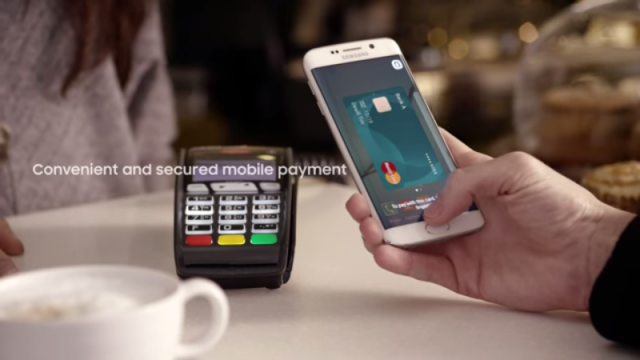
Samsung Pay now supports membership and loyalty cards
I love shopping in brick and mortar stores (except Walmart and Dollar General). No matter what I am buying -- shoes, clothes, food, technology -- I have a blast. My favorite aspect of shopping, however, is getting deals. Spending money is certainly not one of my favorite things, but if I get a discounted sale, it makes the experience much more satisfying.
Unfortunately, many stores require membership and loyalty cards to get the lower prices. These pieces of plastic can accumulate quickly, becoming unwieldy in a wallet or purse. Digital payment solutions should alleviate this dilemma. Apple Pay recently introduced support for Kohls loyalty cards. Today, Samsung Pay is getting membership and loyalty card support too.

Peephole attack could leave more than a billion Android devices open to clickjacking
Earlier this year we reported on the risk Android devices faced from a technique called Accessibility Clickjacking which would allow attackers to monitor all of a user's activity.
At the time of that story the company that uncovered the vulnerability, Skycure, thought that it could affect around half a billion devices. It now believes that despite additional protection being added from Android Lollipop, more than a billion devices may be at risk.
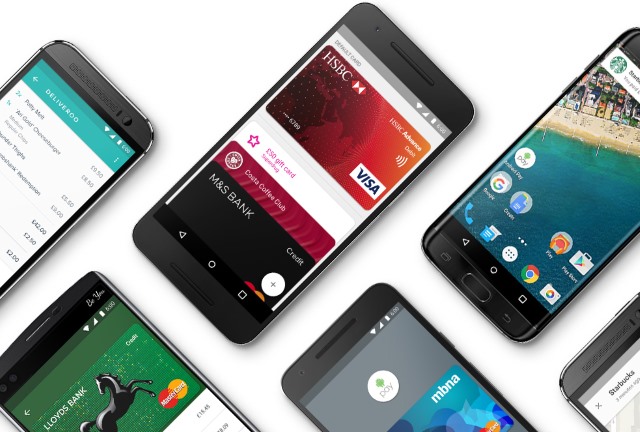
Google launches Android Pay in the UK
After a successful launch in the US, Google has now debuted its contactless payment service Android Pay in the UK. If you're packing an NFC-enabled smartphone running Android 4.4 or higher, you can now make payments in a number of stores -- as well as Transport for London -- with just a tap.
For payments under £30, there's no need to unlock your phone, and Google says that the number of supported banks and retailers will expand over the coming months. At the moment, support is limited to Mastercard and Visa credit and debit cards from Bank of Scotland, First Direct, Halifax, HSBC, Lloyds Bank, M&S Bank, MBNA and Nationwide Building Society, and if you're able to take advantage of the service from launch, there are also special offers to look forward to.
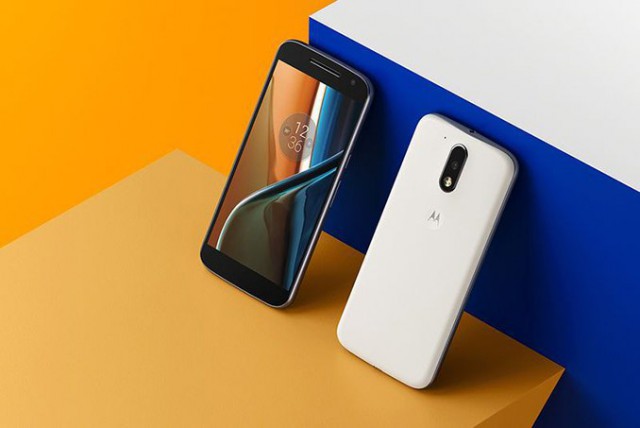
Lenovo unveils Moto G4 and Moto G4 Plus mid-range phablets
Lenovo has taken the wraps off the new Moto G4 and Moto G4 Plus at a media event in New Delhi, India. The pair is meant to appeal to phablet enthusiasts, featuring a large display, big battery and competitive specs at a price tag similar to that of the previous generation.
Moto G4 has grown in size compared to Moto G3. For the latest generation, Lenovo has opted for a 5.5-inch display with a resolution of 1,080 by 1,920, with power coming from a 1.5 GHz octa-core Qualcomm Snapdragon 617 processor and 3,000 mAh battery. The Plus model, despite what its name implies, is no bigger, but adds some nice extras.
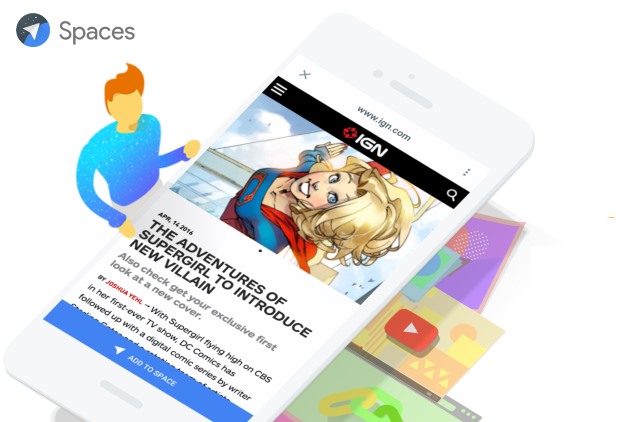
Google launches Spaces for sharing links, YouTube videos, images and more with small groups [UPDATE: It's live!]
Google is introducing a new way to share content with a group. Spaces is a collaborative tool that Google wants people to use to share everything from articles and images to YouTube videos and messages.
So keen is Google for a huge take up of Spaces, that the service is launching in mobile and desktop web versions, as well as iOS and Android apps. It's billed as an alternative to group conversations, and Google wants to help streamline sharing by eliminating app switching -- this is achieved by integrating Google Search, YouTube, and Chrome into a single tool.

Barclays will introduce Android mobile payment service
UK bank Barclays has announced it will soon roll out its own contactless payment service for its Android-using customers in the country. All Barclays customers with an NFC-enabled Android smartphone will be able to pay for things the same way they pay with a contactless card.
For purchases of up to £30, all they need to do is tap their smartphone at the payment terminal, the same way they’d tap a contactless card. For purchases of up to £100, customers would need to tap in their PIN code.
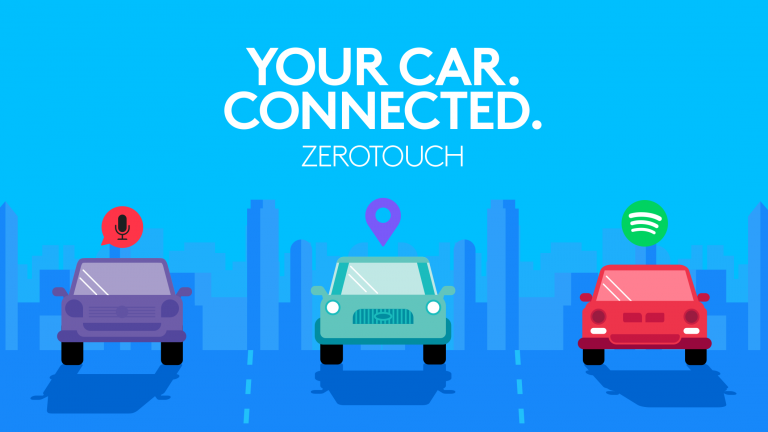
Logi ZeroTouch from Logitech is a smart car mount for Android smartphones
People are seemingly addicted to their smartphones nowadays. You know what I am talking about. Everywhere I go, I see people glued to their phones like zombies. You know what? I am guilty of this too. While I am texting and tweeting while walking or eating in a restaurant, I never do so while driving -- that is just plain stupid. Unfortunately, many people are guilty of texting and driving. It became so prevalent here on Long Island, that some rest stops on the expressway were re-purposed as "text stops", so people can pull over to interact with their tech.
If for whatever reason you need to interact with your phone while driving -- texting, making phone calls, playing music, etc. -- Logitech has a new solution so that it can be done more safely. The Logi ZeroTouch is a car mount for your Android phone, but it is more than that. It is "smart", meaning that your phone knows when it is in the mount, enabling a hands-free experience.
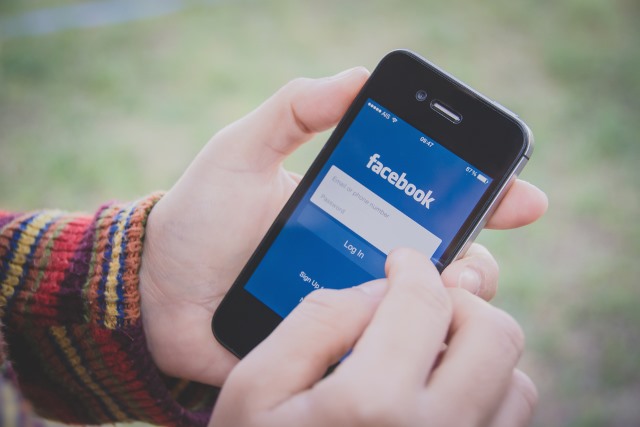
Facebook panders to European privacy concerns by stripping facial recognition from Moments app
Facebook has rolled out its photo-sharing app Moments around the world, and users in Europe have been treated to a modified version. Specifically, the European version of the app lacks the facial recognition feature that allows for automatic tagging of people.
In many ways, Facebook has been forced to release a degraded version of Moments to its EU audience because of the varying privacy laws that exist in different countries. The hobbled app will not attempt to identify individuals in photos, but will group together images that "appear to include the same face".

Android devices suffer higher failure rates than iOS
People have become increasingly reliant on smartphones and as a result they have become less tolerant of poor performance and device problems.
Blancco Technology Group has released a report based on the latest results from its SmartChk diagnostic platform, showing higher failure rates in Android devices than in iOS ones, and revealing some interesting trends.

Xiaomi unveils 6.44-inch Mi Max smartphone, MIUI 8
Chinese maker Xiaomi has announced a new Android phablet, called Mi Max, and officially showcased MIUI 8, the latest version of its Android distribution. The handset is large even for its class, featuring a 6.44-inch display that is more typical of a small tablet than of a phablet.
That is not the only thing that is big about it though, as Xiaomi has also added a 4,850 mAh battery inside Mi Max. This is one of the largest capacities we have seen in a smartphone and, with the help of MIUI 8, it should translate into great battery life -- 76 percent better than iPhone 6s Plus, the company claims.
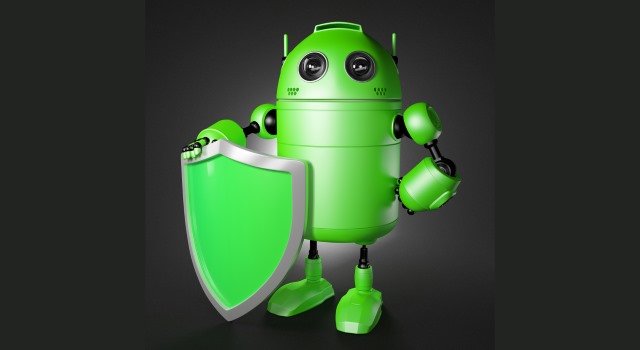
Think Android security updates take too long to roll out? So do the FTC and FCC
Both the Federal Communications Commission (FCC) and Federal Trade Commission (FTC) are starting to ask the questions that Android users have been asking for years: why do updates and upgrades take so long to roll out?
If you're in possession of a flagship or recent handset, the chances are you're in line to receive timely updates for the foreseeable future. But Android's fragmentation means that older handsets quickly drop off the radar, get forgotten and remain unpatched. The FCC and the FTC both want to know why security patches are slow to hit phones, and the agencies have launched separate, but parallel, investigations.

New security vulnerability affects one in four Android devices
A security vulnerability on Google’s Android OS has exposed users’ text messages, call histories and other sensitive data for the past five years.
The security firm FireEye has released a blog post detailing how it affects smartphones running Android 4.3 Jelly Bean as well as earlier versions of the OS. The bug, which has been indexed as CVE-2016-2060, allows apps to access sensitive user data by taking advantage of Android’s permission system.

US government certifies LG's G5, V10 for enterprise and military use
LG today announced that the US government has certified its G5 and V10 flagship Android smartphones for enterprise and military use. The testing was conducted by the National Information Assurance Partnership (NIAP), which verifies the compliance of products with the "Common Criteria" international security standard, which is said to be recognized by 25 countries.
Although LG is only boasting about the two aforementioned handsets, NIAP's test results show that G4, its flagship from last year, is also fit for use in enterprise and military sectors, when running Android 6.0 Marshmallow. NIAP's stamp of approval was received on April 14.
